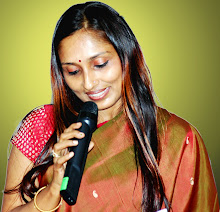Namaste..
On the auspicious occasion of Deepawali, heartfelt wishes that that the coming year is full of ‘Suvarnamaya Siddhi’..
‘Justice delayed is justice denied’ is a famous axiom..
Indian legal system has been victim of delay syndrome for ages. It is popular belief that the case that has been sub-judiced, will remain in court for years to come and the accused has a free hand for time unlimited.
And,
Especially, to conclude and produce verdict for small matters, the time taken is long and wasteful, resulting in losing of faith in the judiciary system.
Hon. C.M. of Gujarat, Shri Narendra Modi’s vision with an idea of starting ‘Evening Courts’, to solve the pending burden proved to be a fresh beginning on the path of quick justice. In 2004, the plan suggested by Shri Modiji, came into existence and it was started in Ahmedabad and Vadodara, in the first phase. On November 2, 2006, the Gujarat Govt. announced ‘The rulebook of Evening Courts-2006’ and on 14th November 2006, Gujarat achieved the status of the first state to begin Evening Courts, in order to impart speedy justice...
The purpose behind formation of Evening Courts, is to communicate rapid justice, in the cases with charges of 3 or less years of jail along with monetary fine.
The evening courts has proven to be a boon for working class, as it saves a lot of their time and money. They need not attend court at the cost of their daily earnings. Moreover, the miniscule cases shifted to evening courts and they resulting in swift outcome, would enable the more important and cases with longer proceedings, with additional amount of time. Thus, the entire service would help in yielding fruits on both fronts.
Recently, Tamilnadu has followed the footstep of Gujarat and become the second state to start the Evening Courts..
In the first phase, Ahmedabad [rural] had 17 evening courts, 5 courts in the Metropolitan Magistrate Court and 5 courts in Rajkot were activated.
On the day of inauguration, Ahmedabad [rural] evening courts passed on 847 cases and in Rajkot 18 cases were given justice. The evening courts work from 6 p.m. to 8.15 p.m. The Gujarat Govt. provides 25% raise to advocates, judges and the court staff. In the beginning, the evening courts began with providing justice in non-major cases but eventually took up Criminal Cases too.
This working in double shift has majorly helped in removing the prevalent backlog of cases. At present, there are 78 such courts in action, around the state, which has aided in imparting justice to 1.64 lakh pending cases..
Vande Gujarat..
Vande Mataram...
Subscribe to:
Post Comments (Atom)

No comments:
Post a Comment